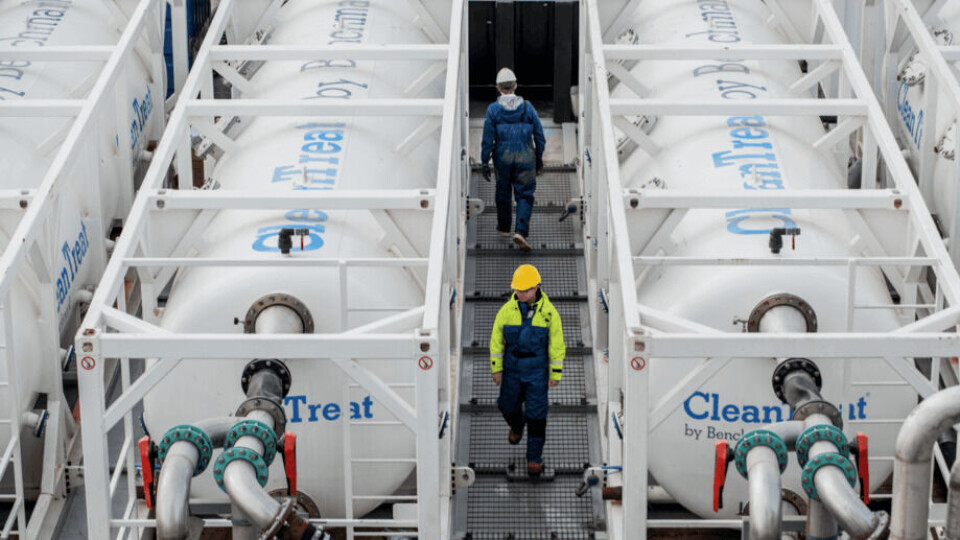
3,252 kg of imidacloprid used on lice in Norway last year
More than three tonnes of imidacloprid, the active ingredient in the novel sea lice treatment Ectosan Vet, was used to treat salmon in Norway last year, new figures show.
UK-based aquaculture biotechnology company Benchmark Holdings, which provides the treatment, introduced the service to fish farmers in August after gaining marketing authorisation in Norway.
Imidacloprid is a neonicotinoid insecticide that has been banned for outdoor use in terrestrial farming because of possible toxicity to bees but is permitted for use in closed environments such as greenhouses.
CleanTreat
Norway has allowed its use for bath treatments in wellboats in conjunction with Benchmark’s CleanTreat filtration system which removes chemical residues from treatment water.
Figures from the Norwegian Institute of Public Health show that 3,252 kilos of imidacloprid were used in Norway against salmon lice last year, considerably more than any other chemical treatment except hydrogen peroxide.
“Imidacloprid in 2021 accounted for a large proportion of the drugs used against salmon lice measured in kilograms of active ingredient,” NIPH said in an article on its website.
“However, when the figures were corrected for the different doses used, the use was less than 2% of the chemical treatments.”
First market
Norway, the world’s biggest producer of farmed Atlantic salmon, is currently the only country where Benchmark has sought permission to use Ectosan Vet, which was developed in Scotland.
Benchmark has said it will apply for authorisation in other countries in due course.
The company has two CleanTreat-equipped vessels in operation in Norway and has ordered a third CleanTreat system.
Revenue booster
Sales of the lice treatment service lifted revenues in Benchmark’s Health division by 347% to £5.8 million in the first quarter of the company’s 2022 financial year – which runs from October 2021.
“We have two CleanTreat systems in operation and treatments continue to show excellent results with efficacy above 99% and good operational efficiency,” Benchmark said in its unaudited Q1 2022 report.























































